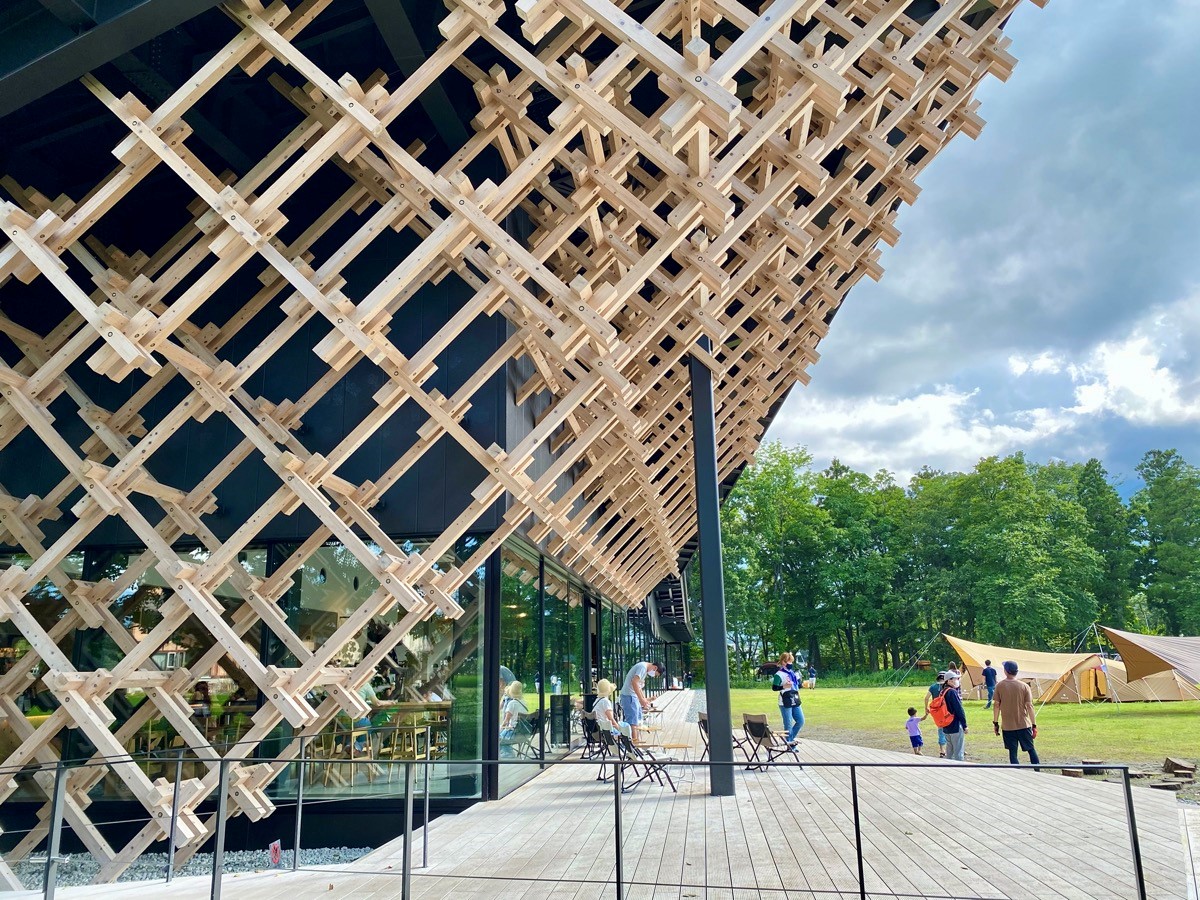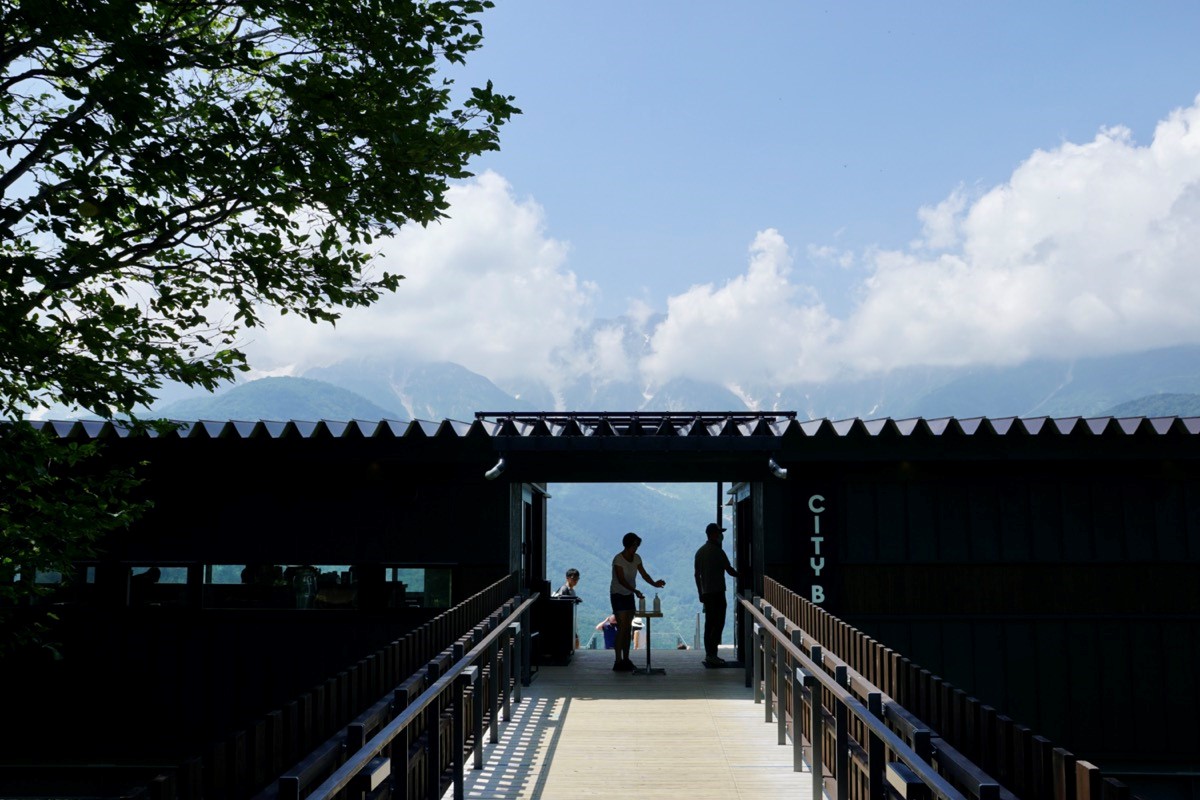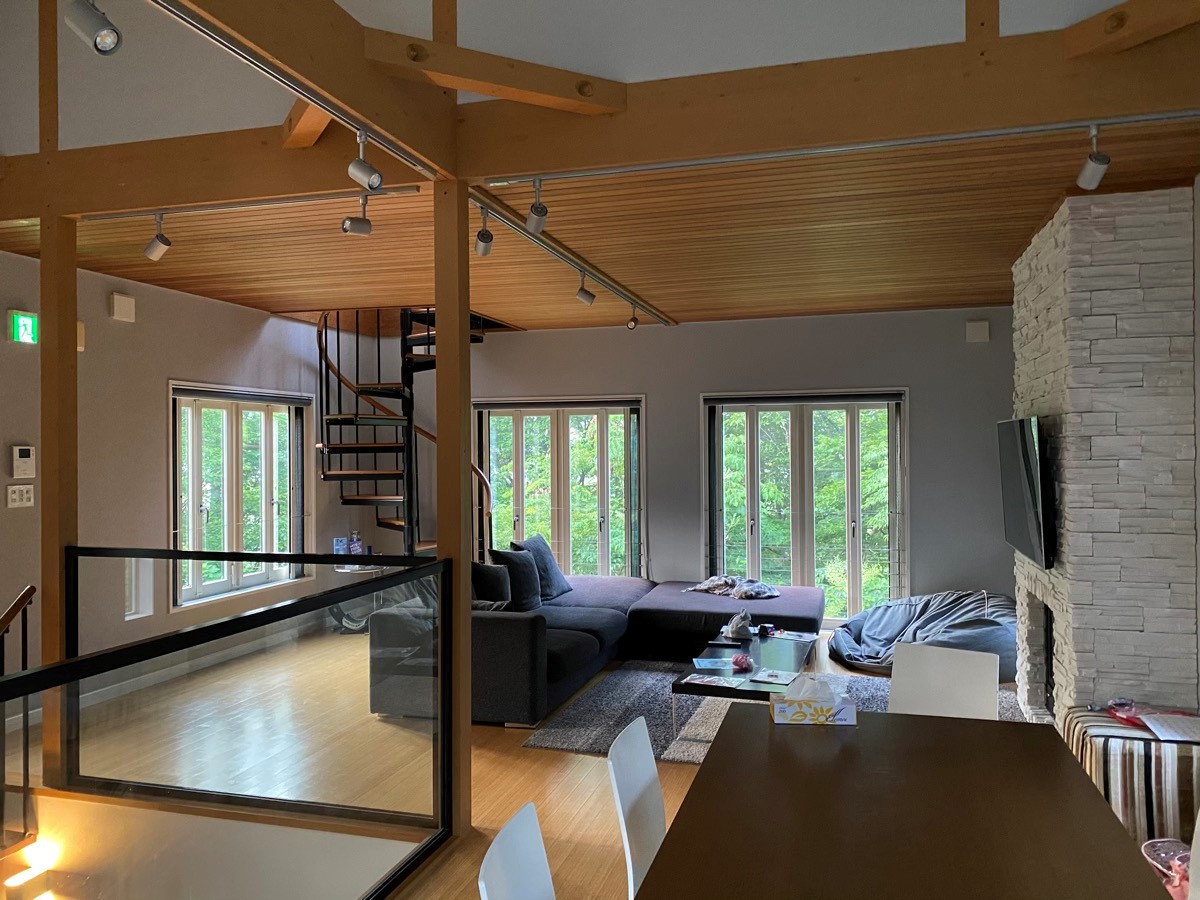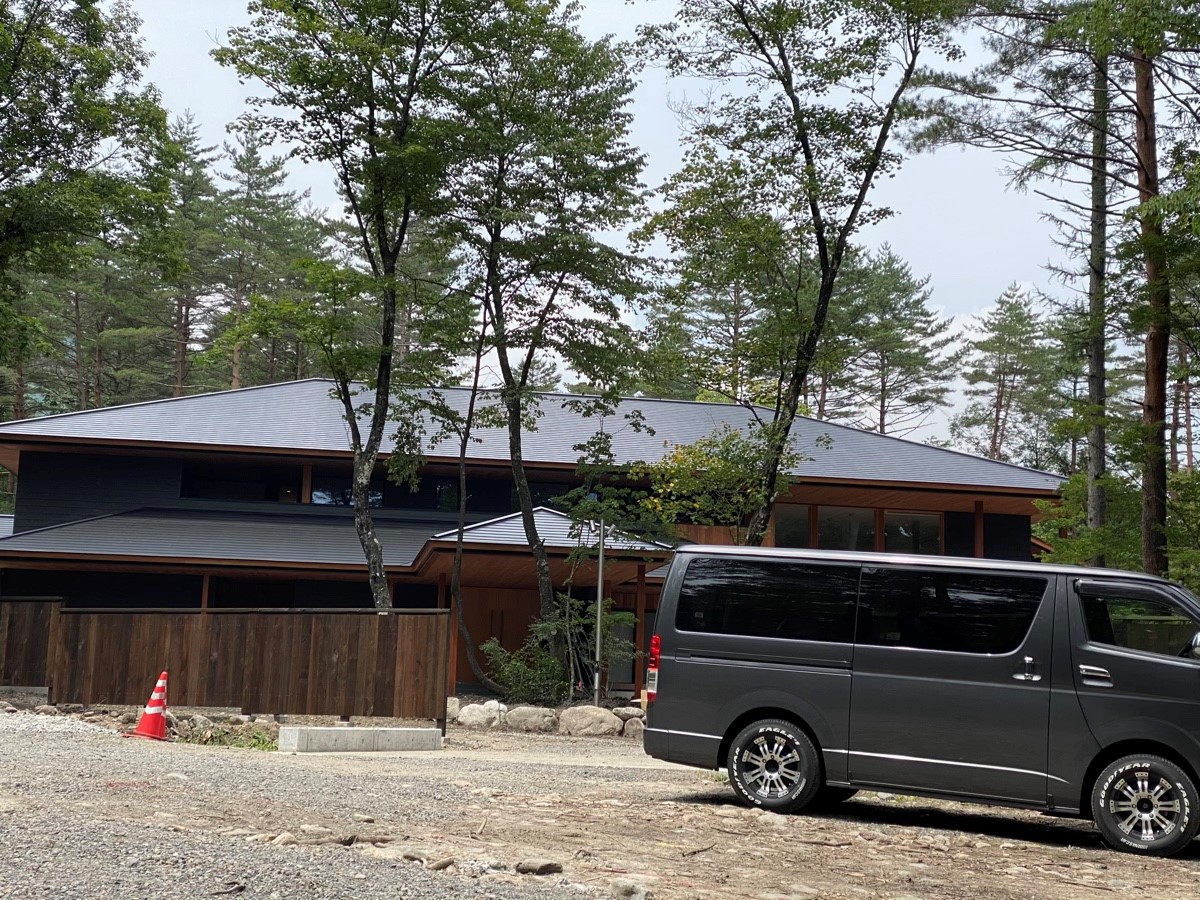Jim Ivanoff | ivanoff@bcwood.jp
Usually I take my family to Canada over the summer as a both a chance to visit family and to escape Tokyo’s extreme heat, but unfortunately this was not an option this year because of COVID-19. Instead, we decided to go to a mountain resort within Japan so we could still cool off in nature. I originally thought of heading for Niseko as my family has never been to Hokkaido, but we were not keen on flying to Sapporo to get there. Going by car would involve either a long drive to the top of Honshu and a ferry ride or an overnight ferry trip departing from just north of Tokyo. On the other hand, Hakuba, being just an easy 3 1/2 hour drive from Tokyo, could be reached without any unnecessary interactions with others. That made the decision for us.
Over the past few years, I have visited Hakuba for business meetings several times, but going as a tourist that had to entertain his family gave me a much more in-depth understanding of the area. The big issue for resort developments in Japan prior to COVID was attracting visitors during the green season so going this summer allowed me to evaluate Hakuba’s new offerings. Hiking was always a staple of this area and mountain biking options were added years ago. However, last year the main ski hill Happo-One together with the outdoor brand Snow Peak added a first-class glamping site, built with a large volume of WRC, in order to attract an entirely different type of clientele.
Other ski hills that make up “Hakuba Valley” have also being adding touches of glamping to entice casual visitors to the top. Iwatake Mountain Resort has added “Hakuba Mountain Harbour” where you can enjoy the delicacies of a famous New York café perched over a ridge looking out at the Japan Alps. Similarly, Happo-One has its “Hakuba Mountain Beach” offering great food and relaxed atmosphere. Tsugaike Mountain has targeted families by importing a variety of French extreme adventure equipment to create the “Hakuba Tsugaike Wow” park on its slopes. While I did not come across that many new commercial buildings down in the valley, Snow Peak’s new flagship store “Land Station Hakuba,” designed by Kengo Kuma, was open and drawing crowds.
Marketing the area as “Hakuba Valley,” instead of focusing on the ten individual ski hills, makes the area more appealing to long-stay visitors as they can quickly appreciate that there are a lot of different options within a short drive. While the various facilities up top do add up to make the valley very attractive, there is a great discrepancy in the quality of the experiences surrounding the bases of those hills. Echoland, which is just off Happo-one’s base, is the most developed with one “village” like street for going out on stroll to eat-out or visit a cafe. There are a lot of quality, chalet style accommodations, as well as a Marriott, and I passed by many construction sites showing that more chalets are on the way, including some very large and opulent ones.
The area below the Hakuba 47 ski hill is also an older, built up resort home development, but it does not have any hang out spots. You have to trek over to Echoland by taxi especially if you want to enjoy some alcohol. Iwatake and Tsugaike, which have a lot to offer, lack charm around their bases. In fact, I was struck by some of the decrepit looking hotels and inns. At the same time, Tsugaike seemed like an ideal place for new development as there is a lot of land with ski-in, ski-out access. I wondered why a reset for this area has not been tried yet.
Talking with locals involved in rentals and tourism as well as clients who are building in Hakuba Valley, it seems that there were many foreigners like myself stuck in Japan who also escaped to Nagano for the summer. With tele-work and tele-schooling widespread, many have been living in their cabins, which they may normally rent out, since the early days of COVID. Meanwhile, builders have been getting many inquiries from renters who had a eureka moment during their stays. COVID-19 has of course hit Japan’s hospitality industry hard, but areas like Hakuba are well positioned to attract urban refugees in the short-term and with enhanced green season facilities, which are also attractive to Japanese guests, are setting themselves up for more balanced inflows over the longer-term.
The BC Wood Japan Office has built up many contacts in this region through over the past year or so, but with COVID affecting the hospitality sector so severely we have been holding off on new promotions. This trip let me see the mid-longer term potential and has made me realize that it is time to start reaching out again. In addition to more chalet construction, the Japanese government has been making more money available to the ski hills to invest in infrastructure and it is very likely that this will be ramped up further as part of their COVID response. There is definitely a lot of great potential for our wood products in this region going forward.



